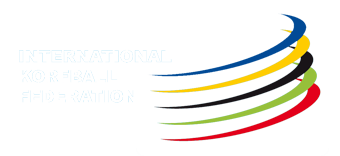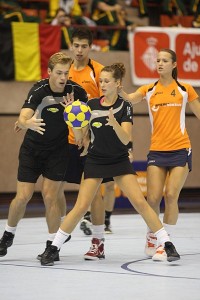The value of a korfball congress
Every two years the korfball countries assemble for the IKF World Korfball Congress and the IKF General Meeting. All 59 IKF member countries are invited to participate.
On 25, 26 and 27 October 2013 around 50 people will be in Lisbon, Portugal for the 2013 edition.
In advance we want to thank the Portuguese Korfball Federation for their bid to host this event and for the work done in the period so far to make it a success.
The previous Congress and General Meeting was in Shaoxing, China in November 2011 and the next one will be in Antwerp, Belgium at the end of October/beginning of November 2015. In 2011 and 2015 these meetings are scheduled in the same period as the IKF World Korfball Championship. In 2013 the delegates meet without a korfball event, as they did in 2009.
In 2011 the IKF restructured its organisation. The on-going growth of the number of member countries was the base for this restructuring. The IKF founded five Continental Confederations; IKF Africa, IKF Asia, IKF Americas, IKF Europe and IKF Oceania. The goals are to give better and more intense support to the respective countries in the continent present and to support an increase the number of member countries in the continent in a controlled way. Points of great attention for the Continental Confederations are support to: increasing the level of play, participation in continental korfball events for all age groups, strengthen the national organisations to secure their existence in a national presence, increase the number of players, share information between countries in the same phase of development, make them all aware that korfball is an external oriented sport for spectators, media as TV and Internet and social media. Furthermore the 2011 General Meeting gave a ‘green light’ for the IKF strategic plan 2012 – 2015, and now we are half way that 4-year period.
What is the value of these meetings?
The IKF Council and the IKF Committees are committed to work on the tasks extracted from the IKF Strategic Plan 2012 – 2015. They are ambitious but realistic unless proven later to be unrealistic!
The Congress in 2013 concentrates on 2-way exchanges of opinion. The IKF Council wants to listen to the ideas and suggestions of the member countries’ delegates. We have further developed plans and want to ‘measure’ if our work is in line with the developments in the countries. These things have to match. We are bound to work together towards the big goal; the Olympic dream.
Besides the official congress meetings there is great added value to the informal sessions between delegates on all sorts of korfball related items; how can we learn from each other, how can we exchange ideas, how can we improve korfball in our local environment? And make new friends!
All together we have many more answers than each individual would have.
The big challenge should be that each of the attendees will leave Portugal and go home with two new ideas and suggestions.
Frans Walvis
IKF Senior Vice-President

